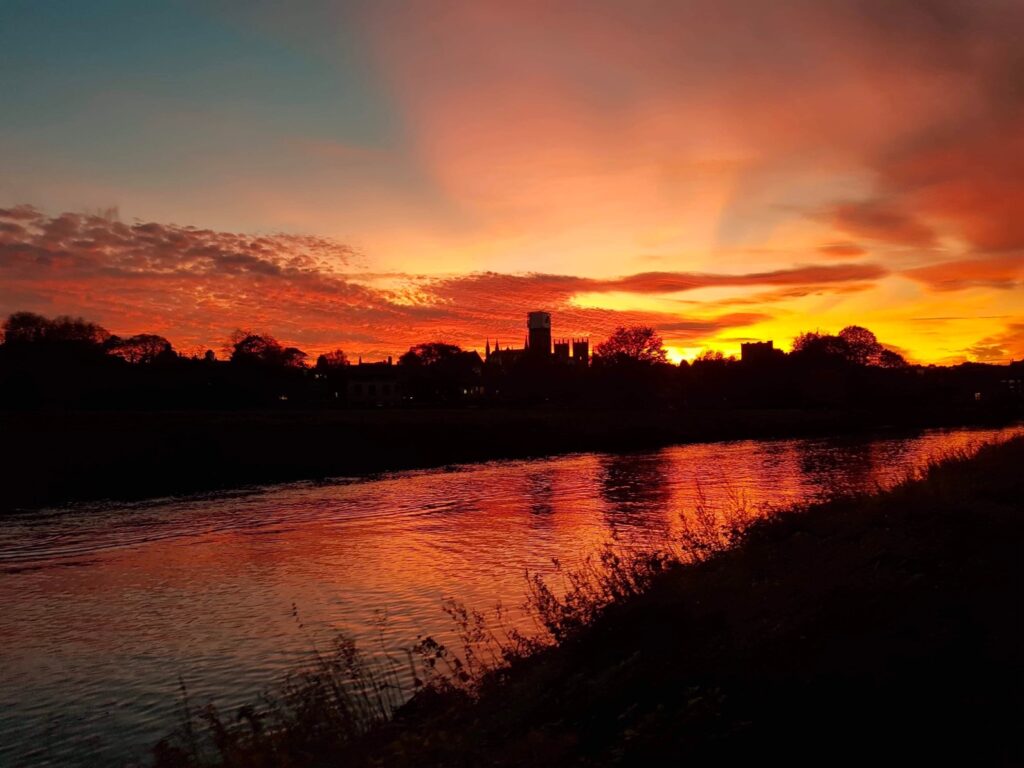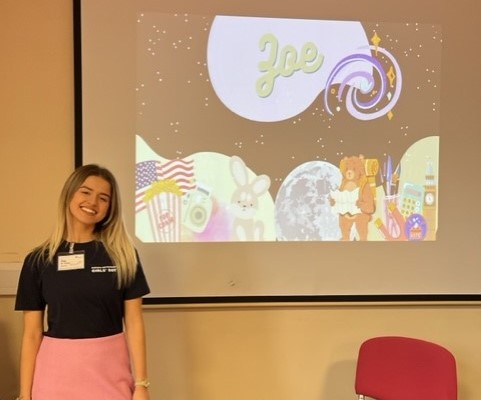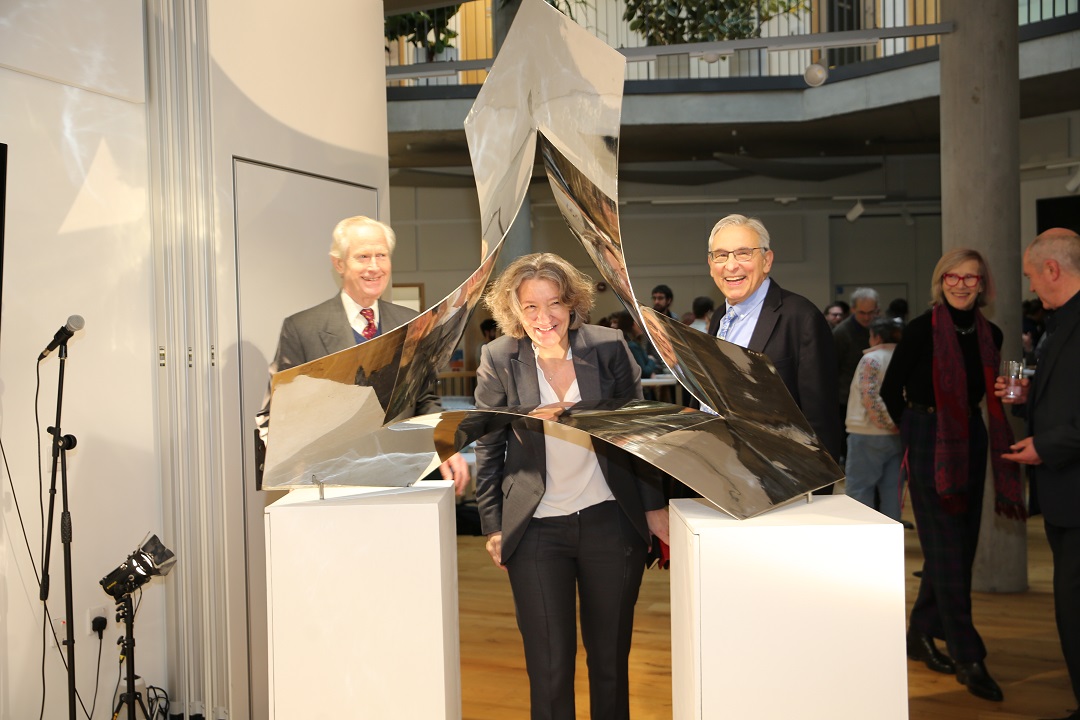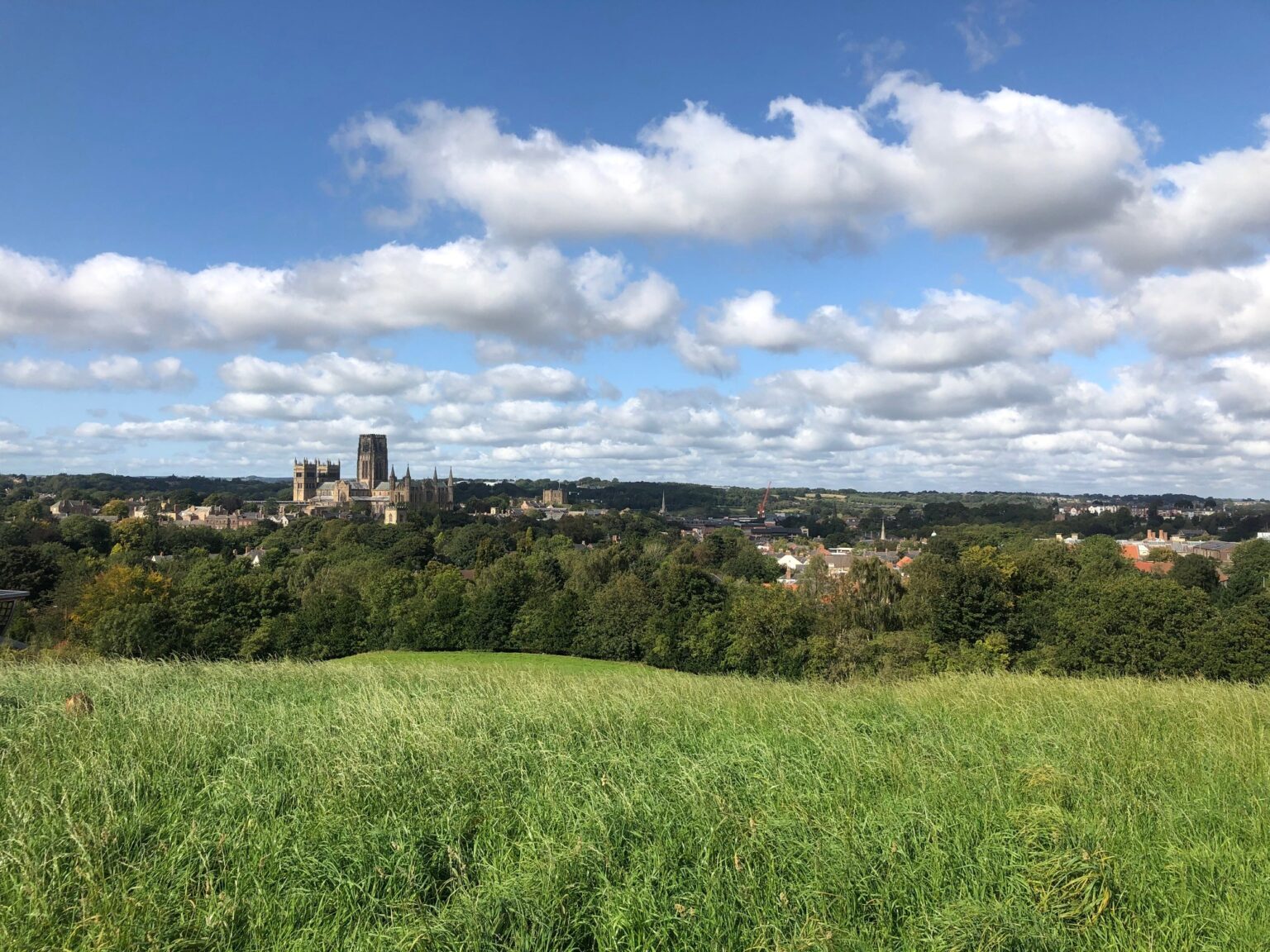So you want to know more about studying Physics at Durham? Well, what I can tell you for sure is that you will be in for an adventure of a lifetime! Let me start by introducing myself, I’m Zsofi, I’m Hungarian and Swiss and I graduated from Durham in 2020 with a Master’s degree in Physics, specializing in Astrophysics.
First-year
Let’s go back to the beginning though. I still remember those first few lectures, more than 200 of us sitting in the biggest lecture theatre on the Science Site, eager to learn about the fundamentals of physics, from mechanics to electromagnetism to special relativity … or sometimes not so eager, when it was at 9am…
It seemed like quite a big step up from school, partly because we were not only solving way more complex integrals, but also because we were becoming in charge of our own learning. There were also, of course, smaller workshops (around 20-30 people), laboratory afternoons, tutorials (around four people) to make sure we were understanding the material and could ask any questions we had in a less formal setting. First year Physics at Durham is great because you don’t even realize the amount of new, interesting content you are learning whilst joining new societies, meeting lots of new people and exploring a brand new (albeit, quite small) city.
Second and third years
As you get onto second and third year, that’s when it gets even more exciting, I think. First of all, you get to tailor your year by choosing some of your courses. For example, I would say that the reason I am now an astrophysicist is mainly thanks to the fascinating ‘Stars & Galaxies’ lecture course, its workshop discussions and the inspiring professors, who really opened my mind to the realm of possibilities that can be explored in the field of astrophysics.
During these years, you also have the opportunity to carry out longer projects where you have to research on your own and solve problems that will inevitably creep up (physics wouldn’t be physics if everything worked in practice the first time, like it does in theory…). For example, one of the highlights of my degree at Durham, was taking part in the AstroLab course, where my lab partner and I observed eclipsing binary systems using the telescopes on the roof of the physics building (see photo below). If you are lucky, you may even meet the infamous ‘AstroLab Fairy’!
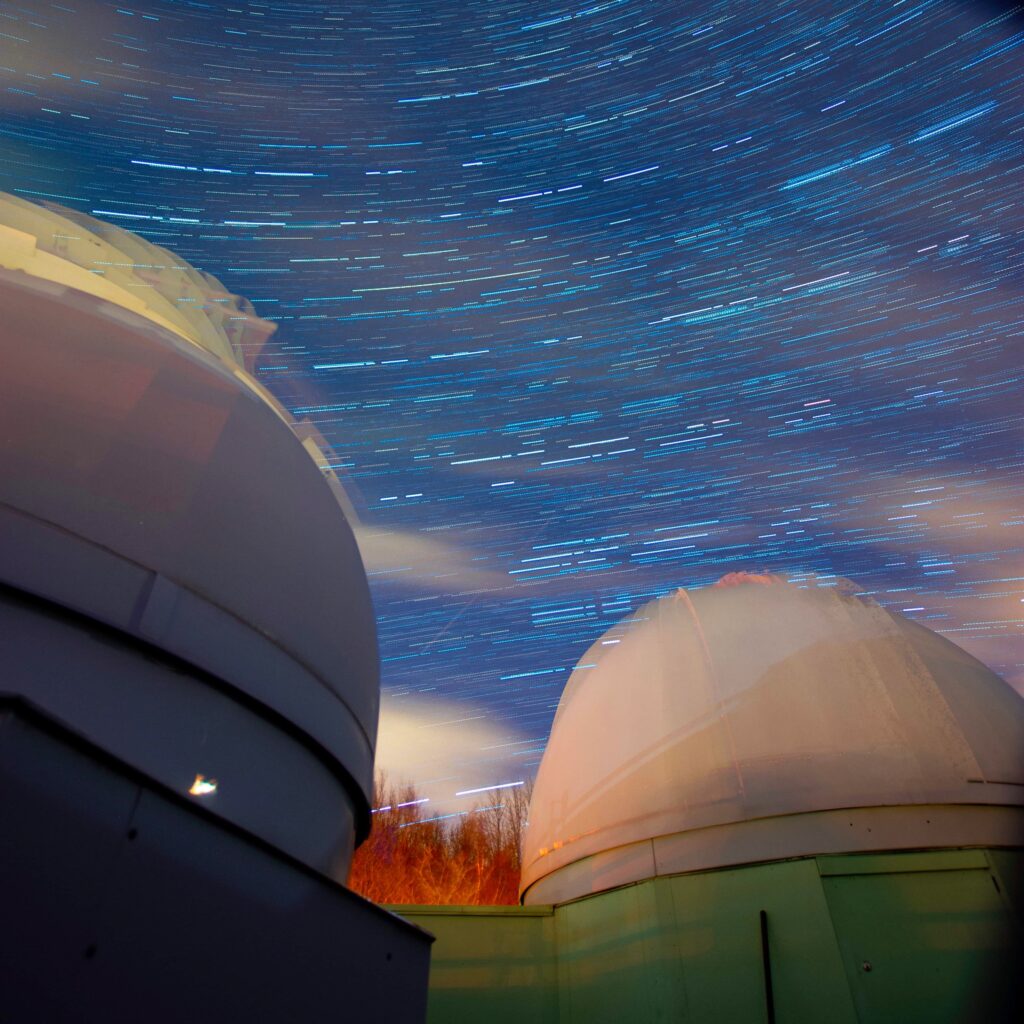
You also get to work on a purely computational project, which greatly improves your programming and critical thinking abilities, abilities that are essential nowadays to be highly employable. For example, I used supernovae measurements to test theoretical models aiming to unify dark energy and dark matter throughout cosmic time.
Fourth-year and beyond
The undergraduate years prepare you really well for what’s to come in fourth year, as by this point you are so proficient at writing lab reports, creating colourful python graphs, digging out important information from a mountain of academic papers and solving complex mathematical problems, that you feel you are ready for the challenge of a master thesis that lies ahead. You will be surprised by this point of the incredible things your brain can come up with when put under the pressure of academic work, the time constraints from you attending formals, silly fancy-dress events and sports training, all whilst becoming a master chef of pesto pasta.
In the summer preceding my fourth year, I also did an internship at the European Space Agency in Spain working on searching for UFOs, a.k.a. ‘ultra-fast outflows’ (no, not aliens!), in black holes. This was a big turning point for me as I realized that I really loved research. It is an unparalleled feeling to be able to contribute unique ideas to the science community. If you get a chance to do an internship during your degree, do it!! I think it is an eye-opening experience in many ways (not only some text to add to your CV).
My fourth-year project was also about black holes, more specifically these peculiar objects called ‘red quasars’. This gave me a small taste of what doing a PhD would feel like as I was working closely with my supervisor and other outstanding researchers in the department to puzzle together the role ‘red quasars’ play in the quasar evolutionary scheme. I especially liked how we, as students, were treated with so much respect and our ideas were always valued, even though we were just at the beginning of our scientific careers.
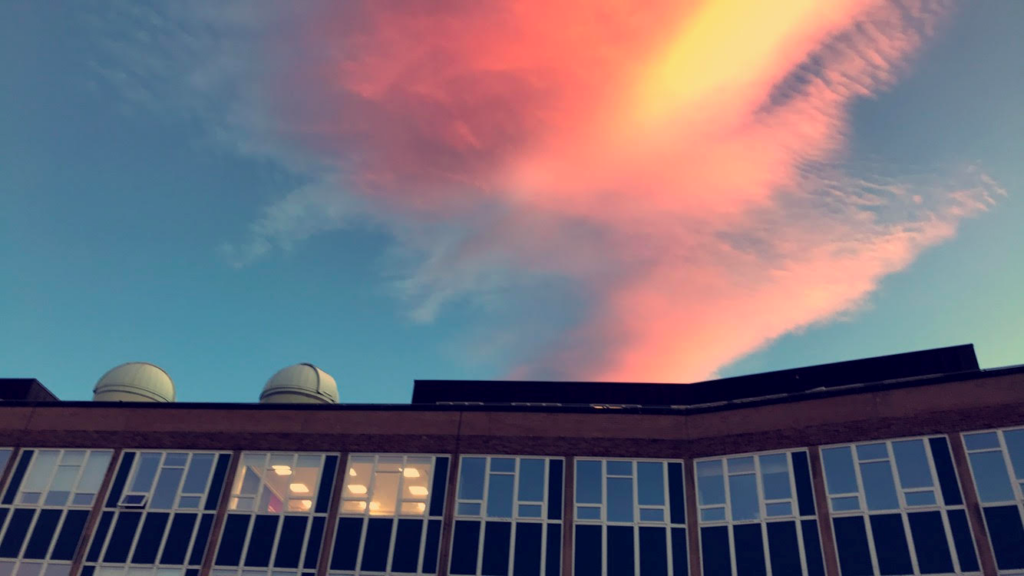
The Durham physics degree challenges you in more ways than you can imagine and makes you delve into unfamiliar topics on a daily basis, but by doing so, you develop as a scientist and a person. This really helped me figure out what I wanted to do after university as Durham gave me a small taste of everything.
I am currently a Young Graduate Trainee at the European Space Agency working with X-ray data from the XMM-Newton satellite (more black holes!), as I wanted to diversify my skill-set further and expand my scientific network before embarking on my PhD program in the coming fall.
Discover more
Our Department of Physics is a thriving centre for research and education. Ranked 4th in the UK by The Guardian University Guide 2022, we are proud to deliver a teaching and learning experience for students which closely aligns with the research-intensive values and practices of the University.
Feeling inspired? Visit our Physics webpages to learn more about our postgraduate and undergraduate programmes.

